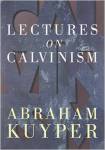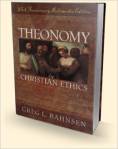It is now January 8, 2015 and I realize this should have happened a week ago but I wanted to take a look back at 2014. 2014 was at times stressful but for the most part it was a pretty good year. It saw the birth of my second daughter, Arriana Liberty Spurgeon. I also said goodbye to one church family and ministry position and hello to another. God being always faithful also provided for my family this year even when times seemed tight. I am thankful to have been able to spend another year with my wonderful wife. I also was able to complete another year of school work at Seminary. Studying Hebrew this past semester was stressful but God is good. In 2014, I was also able to read some great books, a few of which challenged some positions that I had held. Therefore, I wanted to devote the rest of this blog post to highlighting some of the best books I read in 2014 along with pointing out a few places where some of my theological positions either changed or were clarified. So without further ado here is my Top Books of 2014 List:
This year I found two books to be very helpful in thinking through student and family ministry. The first book “Perspectives on Family Ministry” is compiled and edited by Timothy Paul Jones, a professor at the Southern Baptist Theological Seminary. If you are not familiar with the “Perspectives” books, they are are a series of books put out by B&H Academic that cover a wide range of theological topics from different viewpoints. Each book typically has three or more authors who write about the topic and then critique each others position on the topic at hand. They are excellent little books to help get a basic understanding of the different arguments. I had not really been aware that there was much of a debate about youth ministry and the need for family ministry. This book presents three different ways or strategies for engaging families in ministry and how that relates to youth or student ministry. While you can read for yourself and discover which view you think is most biblical, in my opinion the main thing is we as the church need to do a better job engaging, training, and leading families to minister to themselves and others. Parents are the ones given the primary responsibility to raise and nurture their children in the Lord. One of the authors contributing to the perspectives book, Voddie Baucham Jr, also wrote a book entitled “Family Driven Faith:Doing What It Takes To Raise Sons and Daughters Who Walk With God.” This is a wonderful book that challenges parents, fathers in particular, to take responsibility in raising their children for God. Baucham says that “Our primary goal for our children is that they walk with the Lord.” This means taking an active role. Parents need to be spending time in the word of God with their children. “If I teach my son to keep his eye on the ball but fail to teach him to keep his eyes on Christ, I have failed as a father. We must refuse to allow trivial, temporal pursuits to interfere with the main thing. Making the team is a tremendous achievement; however, it must be put in its proper perspective. No sports endeavor will ever be as important as becoming a man or woman of God.”
History is one of my favorite subjects especially American history. I enjoy reading about the founding of America up through the War between the States, the Civil War. There is a nice series put out by Mark David Ledbetter called “America’s Forgotten History,” that I recently discovered. Ledbetter is a libertarian and he writes a series of histories following the founding of America up through the 20 Century from this perspective. He works to show the way that America has went from a simple Republic devoted to individual liberty to the bloated government leviathan that we have today. Mark David’s best work is the second volume which covers much of the history leading up the the Civil War. He is forthright about writing from the libertarian perspective. It is refreshing to see a historian being upfront about any bias or worldview they may have. The series was self-published at first as a Kindle ebook but has since been picked up by a publisher. You can still get it for very cheap on the Kindle. A few criticisms that I have are that the author seems to downplay the religious understanding leading up to the founding and also seems to conflate all New Englanders with the Puritans. Thus when Unitarian beliefs take over much of the once Puritan universities, Mark David does not do a good job of distinguishing between the two. I would highly recommend reading this and supplementing it with work done by others especially Rousa Rushdoony.
Two books that I found helpful in motivating and thinking through evangelism were J.I. Packer’s “Evangelism and the Sovereignty of God,” and John Piper’s “Let the Nations Be Glad.” Both of the books are excellent in providing a clear biblical foundation for evangelism. Some have criticized Calvinism because they think that belief in the sovereignty of God over all things including salvation can lead to a lack of motivation of sharing the gospel. Packer works to “show further that, so far from inhibiting evangelism, faith in the sovereignty of God’s government and grace is the only thing that can sustain it, for it is the only thing that can give us the resilience that we need if we are to evangelize boldly and persistently, and not be daunted by temporary setbacks.” Belief in the doctrine of election under-girds us as we evangelize. We can be confident in the fact that God can overcome any resistance to the gospel. God has chosen to call a people to himself and thus we do not need to trust in our own abilities to preach the Gospel. We can be confident that the power of the Gospel will prevail. Piper reminds us that “Missions is not the ultimate goal of the church. Worship is. Missions exists because worship doesn’t. Worship is ultimate, not missions, because God is ultimate, not man. When this age is over, and the countless millions of the redeemed fall on their faces before the throne of God, missions will be no more. It is a temporary necessity. But worship abides forever. Worship, therefore, is the fuel and goal of missions.” Again we are motivated out by a love for God that moves us to love others.
This confidence in the sovereignty of God along with a study of God’s word this past year has led me to come to hold a Post-Mill view of the end times. I won’t have time in this short post to go into what all this means but in short Postmillennialism holds that Jesus Christ establishes his kingdom on earth through his preaching and redemptive work in the first century and that he equips his church with the gospel, empowers her by the Spirit, and charges her with the Great Commission (Matthew 28:19) to disciple all nations. Postmillennialism expects that eventually the vast majority of men living will be saved. Increasing gospel success will gradually produce a time in history prior to Christ’s return in which faith, righteousness, peace, and prosperity will prevail in the affairs of men and of nations. After an extensive era of such conditions Jesus Christ will return visibly, bodily, and gloriously, to end history with the general resurrection and the final judgment after which the eternal order follows. There is much more that could be said here but I will leave that for another post. An excellent resource for this view is www.PostmillennialismToday.com.
The last two books I want to mention are ones that has helped clarify my position on politics and ethics are “Lectures on Calvinism” by Abraham Kuyper and “Theonomy in Christian Ethics” by Greg Bahnsen. Kuyper’s book is excellent in applying the Lordship of Christ to all areas of life. Kuyper is famous for saying that “There is not a square inch in the whole domain of our human existence over which Christ, who is Sovereign over all, does not cry, Mine!” I’ve always held to the belief that our nations leaders should seek to follow and obey God. However, I was somewhat inconsistent on how this was worked out. Which brings me to the conclusion as Bahnsen excellently defends, that God’s law as revealed in the scriptures first in the Old Testament and then clarified in the New are to be the standard by which all people and nations should conform. God moral and civil laws are binding still today and should be upheld by our leaders. God will judge all people and nations by how they obey his commands. Bahnsen does an excellent job laying out the case of what is called Theonomy. He answers every objection that I have heard mentioned. Again I will have to leave a discussion of theonomy to another post.
There are several other books I could mention but I wanted to keep this post pretty short. I mainly wanted to highlight some good and/or interesting books that I had read this past year and recommend them to you. I am looking forward to what 2015 has in store. May you be blessed this year by the love and mercy of Jesus Christ.







